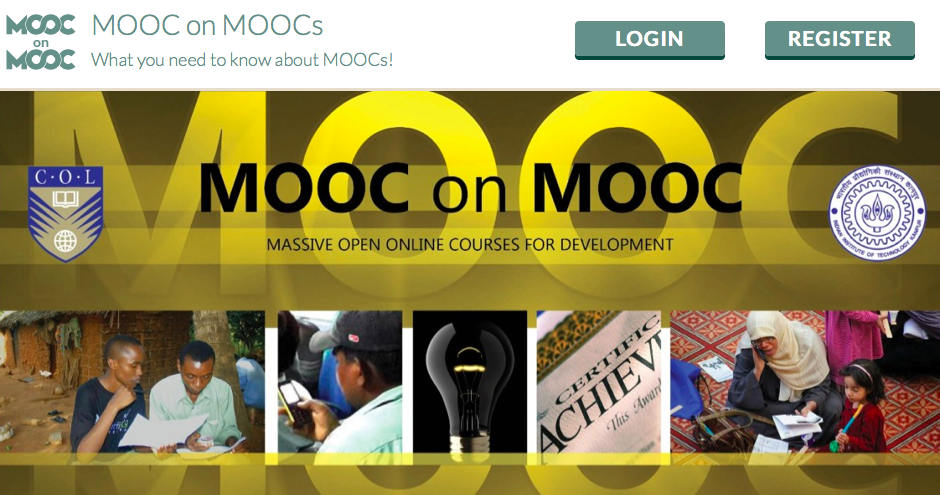MOOCs on MOOCs
 We’ve all heard about MOOCs but are you aware of key concepts, methods and practices in the MOOC paradigm? So how about a MOOC on MOOCs?
We’ve all heard about MOOCs but are you aware of key concepts, methods and practices in the MOOC paradigm? So how about a MOOC on MOOCs?
Today we have a guest post from Balaji Venkataraman from the Commonwealth of Learning, based in Vancouver, Canada. He is associated with OER efforts and is currently involved in designing an offline device that can provide access to OER on large scale (www.col.org/aptus). He served as the Course Manager for the MOOC on MOOCs mentioned below.
***
The Commonwealth of Learning (COL) and the Indian Institute of Technology Kanpur (IITK) offered a MOOC on MOOC during 5 Sep-12 October 2014. We had 2342 participants from 92 countries, the top five being India, Nepal, Mauritius, South Africa and Canada. About 1900 participants were active in the course. From an exit survey, it emerged that most participants were teachers in the Higher Education sector while a small number were full time students. Besides mentors and facilitators from the two collaborating institutions, there were other speakers, such as Sir John Daniel, Sanjay Sarma, Russell Beale, David Porter and key education sector leads from Google and Microsoft. We expect about 400 to qualify for participation. There was a significant demand from the participants for a space to continue the discussions. We have converted the course space into an online discussion space and will host it for about six more months. This will help us understand how MOOCs could lead to new communities of practice. Here is a news item about this course.
One of the purposes in offering this MOOC was to demonstrate that there can be “generic” MOOCs as contrasted to “branded” ones and to explore the usefulness of MOOCs in a situation where most participants are from developing countries. A purpose-built platform called MOOKIT was deployed and worked successfully. It will be released as an Open Source application after a few more trial runs. In a couple of weeks from now, we will make all the learning materials, available online as OER. The course analytic data, after carefully removing all kinds of personal identifiers, will also be posted online as an Open Data set for which there was a serious demand in the course.
This is the second time the collaborators have offered a MOOC. Back in 2013, they offered a MOOC on Mobiles for Development which attracted 2286 participants from 116 countries (learning materials released as OER). A detailed analysis is available in the public domain.
 Open Education Working Group
Open Education Working Group 




Leave a Reply